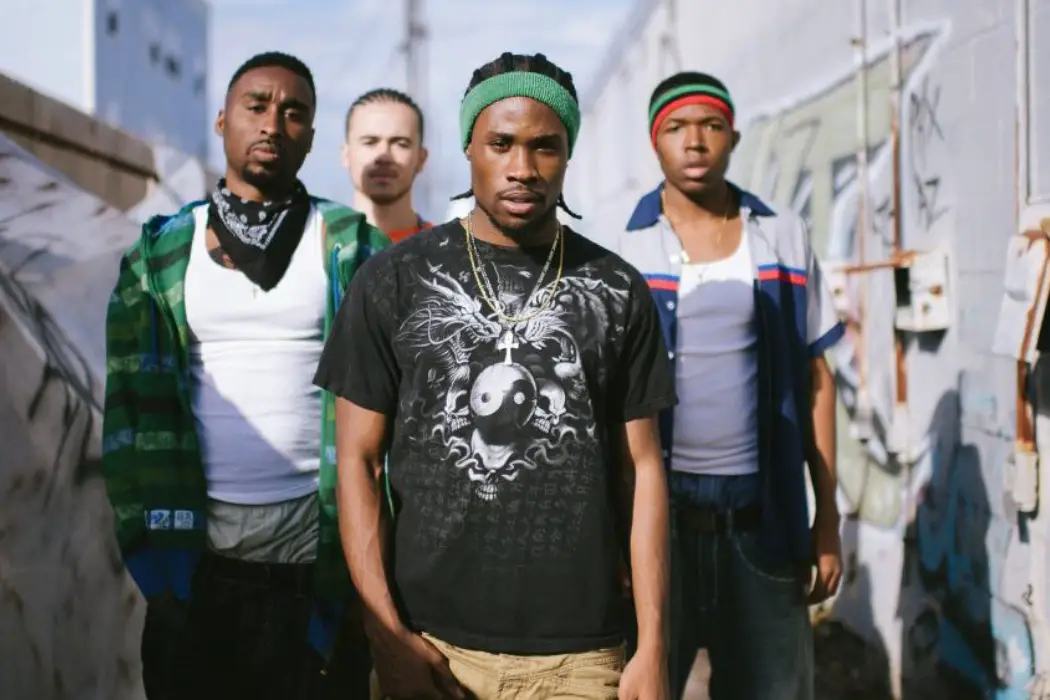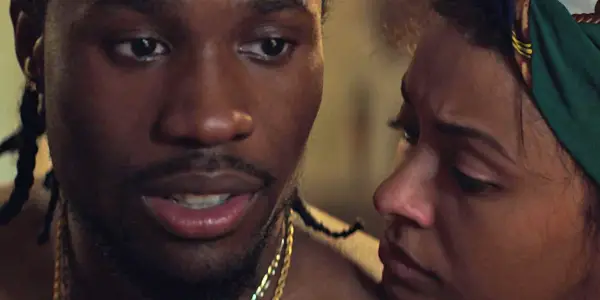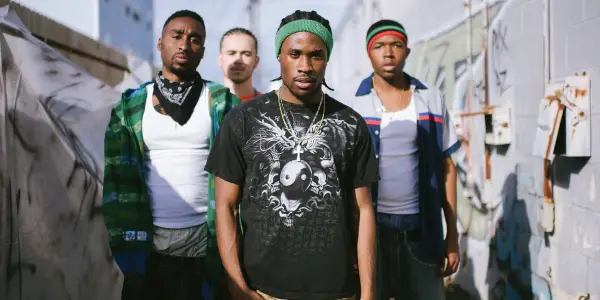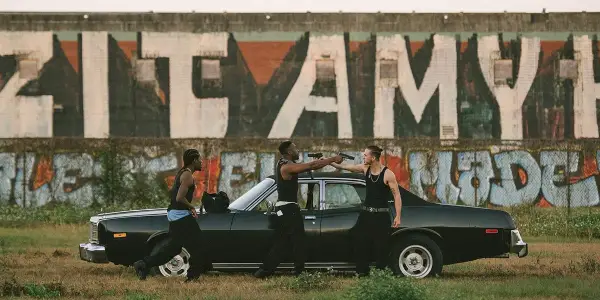CUT THROAT CITY: When You’re Born Underwater

I am a husband, father, and teacher in the upstate…
American crime films have always been about the dark side of the American dream. From Little Caesar to Vito Corleone, the American gangster film lays bare the ruthlessness that one must possess to rise from the bottom to the top of American society. In the past, these films have tried to demarcate legitimate businesses’ pursuit of wealth from the exploitive and violent acts of illegal trades. RZA’s new film, Cut Throat City, eliminates the binary between these enterprises and reveals that they are all a part of the American dream and our capitalist system creates both types of entrepreneur: the respected founder of a multibillion-dollar company and the gang leader that controls the drug trade in a local city.
When You’re Born Underwater
Cut Throat City tells the story of Blink (Shameik Moore), a resident of the Lower Ninth Ward who has returned to his home post-Hurricane Katrina with his new wife Demyra (Kat Graham) and his son, but he lacks job prospects or an income to provide for them. Blink is an artist who earned his associates from Tulane University. Though talented, his work is rejected by white gatekeepers who fail to imagine an audience or a market for the stories that he has to tell. When Demyra reminds him that he is “a talented, educated, black man” and they “can go anywhere [they] want,” he reminds her that “None of that matters because I’m still in the Ninth Ward… That’s the whole history. That’s my problem. We was underwater before Katrina.”

Blink isn’t the only artist struggling to get by in his community. He has three close friends: Andre (Denzel Whitaker), a trumpet player who dreams of being a great jazz musician; Miracle (Demetrius Shipp Jr.), who has been left homeless after Katrina and lives out of his van while dealing drugs to try to make ends meet; and Junior (Keean Johnson), who mainly assists in the activities of the others while bringing along his dog. When Blink and his friends see no hope of escaping their bleak financial plights and FEMA offers no relief, they decide to talk to Cousin (TIP “T.I.” Harris), a local gangster who offers them relief through a planned heist at a local casino.
When the heist goes awry, Blink and his friends are hunted by Cousin, who thinks that they shorted him on the profit from the job, a relentless police detective (Eliza González), and a city councilman who is a former crooked cop (Ethan Hawke). Though the plot feels familiar for the genre, RZA uses the familiar structure to explore the reasons that people are driven to commit these kinds of crimes and to show that those in power, which in America means those with the most capital, have all committed various crimes to rise to their positions of authority. While Blink’s crimes seem overt, the only difference between Blink and the city councilman’s crime is the invisibility of the councilman’s crime, which was shielded by the badge that he formerly wore.
“There’s No Place Like Home”
The critique of the system in the film stretches beyond local corruption. The characters occasionally provide histories of the area as they reflect on their plight. Hawke performs a stunning monologue where he explains that the city has long wanted to wipe out the Lower Ninth Ward, and Katrina provided the opportunity for its gentrification. In another moment, Blink defends his crimes to the detective that is pursuing him by reminding her that the casinos that they robbed have been robbing his community for years. T.I.’s character sums up the film’s view of our system best when he says, “You can say what you want about their methodology, but if you get out the personal shit – study their motives – you’ll find we ain’t that different. We’re all greedy ass mothaf*ckas. That’s what makes us American.”

Cousin and the Saint (Terrence Howard), the gangster who holds the highest rank in the film, are merely a reflection of our corporate culture whereas Blink and his friends are merely trying to survive. Blink simply desires to make art and provide for his family, but he lives in a country where he and his community have been abandoned because of both race and class. Once Blink and his crew go on the run, there is nothing more that they want to do than to return home and live normal lives.
The film resonates with many elements of The Wizard of Oz, which is often alluded to in the film. The film reveals that the characters want to socially advance while taking their community and their home with them, but, unlike Dorothy, the corporate interest would prefer to leave parts of their home underwater while gentrifying the rest. The American dream of Blink and his crew is not one of leaving a rundown neighborhood, their dream is the desire of making sure that their neighborhood has its fair share of America’s economic pie.
Avoiding Cliches
A film like Cut Throat City could easily fall into cliches in its treatment of race, poverty, and crime, but RZA, screenwriter P.G. Cushieri, and the magnificent cast of this film constantly work to humanize the characters and to help us understand how their actions grow out of their material circumstances. Even T.I.’s character, who would traditionally be seen as the devil of the film offering a destructive bargain, is shown to be complex in his motivations.

If he is the devil in the film, it is because there is a devil above him who demands to be paid. His desires to be on top and to succeed are admirable within the context of the American Dream and American culture even if his methods are unethical.
Conclusion
Cut Throat City is the film that we need for our current moment. As we struggle to come to terms with the sins of our country’s past and present, Cut Throat City helps us to better see the sickness within our society and to acknowledge the human lives that have collectively been destroyed through greed, systemic oppression, and economic exploitation. Once we can see through the ideologies that have brought us to this point and can see people from different races and classes as fully human, maybe we can begin the process of healing and restoration. Maybe, as the film suggests, we can even be redeemed.
Have you seen Cut Throat City? What did you think? Let us know in the comments below!
Cut Throat City will be released in theaters and on VOD on August 21, 2020.
Watch Cut Throat City
Does content like this matter to you?
Become a Member and support film journalism. Unlock access to all of Film Inquiry`s great articles. Join a community of like-minded readers who are passionate about cinema - get access to our private members Network, give back to independent filmmakers, and more.













